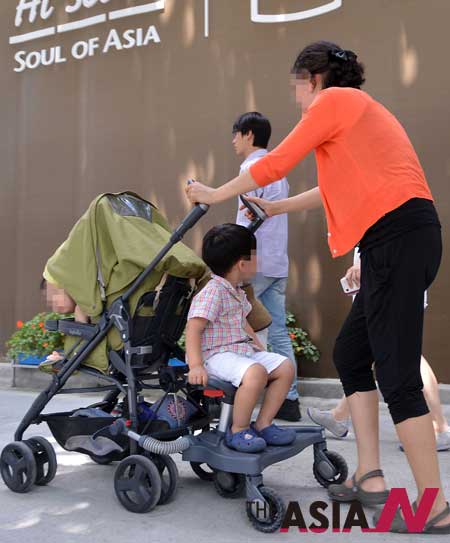Irony of fast-aging society

Number of women giving birth over 40 doubles in a decade
Lee Euh-ha, a 35-year-old office worker in Seoul who has been married to her restaurant-owner husband for four years, wants to be a mother one day. Just don’t expect a clear-cut answer as to when.
As with millions of other workers, her wages have significantly lagged against inflation in recent years and the subdued economy has been eating into her husband’s business. This makes it harder for the couple to service their debt tied to a central Seoul apartment, which is rapidly losing value in a decaying property market. The baby will have to come later, Lee said.
“I guess it’s not impossible to have a baby now but we aren’t sure it would be the right choice. Of course, there is the psychological pressure that I could well be around 40 when we do have our first child,’’ she said.
“We really need my paycheck now and I am not sure I can continue working at my company under the same conditions after having a child. I think there are many double-income households in the low-to-middle classes dealing with the same problems.’’
One might think that Korean policymakers, fretting over a microscopic fertility rate and a workforce aging in dog years, would be fist pumping over any news scroll that includes “babies’’ and “increase’’ in the same sentence.
However, new statistics showing record numbers of women in their 40s having babies have been greeted with uneasiness because they appear to be evidence that the state has failed miserably in efforts to persuade women to have more children.
Call it the exception that proves the rule: the same economic and cultural reasons that pushed down Korea’s birthrate to among the lowest in the world are driving a surge in women choosing to have families two decades or more later than they once did.
Over the past decade, the number of women over 40 giving birth has doubled, according to figures from Statistics Korea. Experts put this trend down to the postponing of childbearing: women often prioritize establishing their careers and the job market erosion in recent years has made it more difficult for school leavers and graduates of both sexes to get on the career ladder.
Perhaps the most critical problem is women’s lack of freedom in achieving a work-life balance, owing to ineffective welfare systems and a corporate culture defined by long working hours and ignorance toward maternity support. This has women in their 30s dropping out of the workplace at an alarming rate, while women who stick at it aren’t in a rush to get pregnant before they see real progress in stabilizing their corporate careers.
Health experts have warned about the trend of women waiting longer to have children, although advancements in health care and maternity treatment have offset some of the threats.
“The biggest factors obviously are the advancing marriage ages, postponement of childbearing and employment-related conditions, such as an increase in the number of double-income households. The financial burden related to childcare is also a factor that widens the age gap between children in families with more than four members,’’’ said Lee Sam-sik, a senior researcher at the Korea Institute for Health and Social Affairs (KIHASA).
The 10,635 babies born to women over 40 last year represented the highest ever total since the government began keeping related data in 1981. The figure represented an approximate doubling from 5,445 in 2001 and a five-fold increase from 2,101 in 1989. The 66 women over 50 who gave birth last year was the highest number in this category for 16 years.
The average age at which women give birth to their first child rose to 30.25 in 2011, up from 30.1 in 2010 when it first passed the symbolic mark of 30 because people continue to put off having children.
Korea’s fertility rate, or the average number of children women have during their childbearing years, was at 1.24 last year, virtually staying put from 1.23 in 2010 and continuing to represent one of the lowest figures in the world. <The Korea Times/Kim Tong-hyung>




